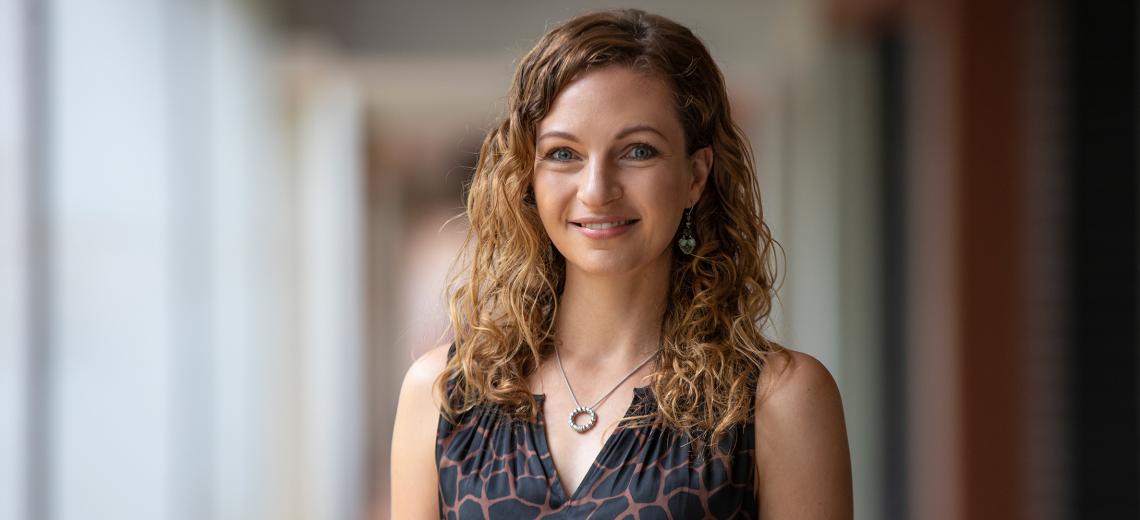
5 minute read
Dr Elena Capatina is a Senior Lecturer in the ANU College of Business and Economics’ (CBE’s) Research School of Economics (RSE).
Elena’s research lies at the intersection of macroeconomics, labour economics and health economics, in particular, how health affects earnings inequality through channels including endogenous labour-supply decisions and human-capital accumulation. Her work is published in top outlets including Journal of Monetary Economics, Journal of Health Economics and Labor Economics.
After obtaining her PhD from the University of Toronto, Elena worked as a post-doctoral researcher at the ARC Centre of Excellence in Population Ageing Research (CEPAR).
“The interdisciplinary environment at CEPAR provided me with extensive opportunities to expand my knowledge, including working with esteemed economists and being inspired by how they pursued their research passions,” she reflects.
It was her achievements at CEPAR that caught CBE’s attention and saw her hired during its strategic drive to recruit the best female researchers in the country.
RSE Director Professor Rabee Tourky is “delighted RSE is to have such a promising young academic working in the School. RSE is grateful for the CBE’s progressive approach in encouraging and financing the extensive hiring of talented women in Economics and Business.”
Elena recalls being equally impressed by CBE, in particular, its support for early-career researchers.
“The research support afforded to early-career researchers such as myself is critical to developing our networks and jump-starting our careers. Being at the frontier of research is very important to me and it was excellent to be offered such support from the College. I also value the freedom I have to work on topics that I am passionate about in my current role at CBE,” she explains.
Since arriving at ANU, Elena has investigated how socio-economic groups benefit differently from the provision of health insurance and from health reforms such as Obamacare. She's currently modelling the household-level demand for healthcare in the United States and, in doing so, investigating the implications of the informal care provided by families and assortative mating, or the frequency with which individuals choose spouses from similar socio-economic backgrounds.
But despite her already hectic research schedule, Elena expects things to get busier moving forward.
“My area of research will likely expand even more rapidly than in recent years as it tries to inform policymakers on the long term impacts of the COVID-19 pandemic. I look forward to making valuable contributions to this important body of work,” she adds.
As well as shaping government policy, Elena uses her research to inform her teaching. And like her research, her efforts in the classroom have, and continue to be, shaped by COVID-19.
“The ANU campus shut down a few weeks before I started teaching my first course here. So not only did I have to prepare a completely new unit, I had to pivot how I delivered it,” she recalls.
But, Elena not only took these changes in her stride, she embraced them.
“I think the pandemic presented an amazing opportunity to re-think teaching at universities, adapt quickly to the new environment, and even reflect on the changes and the direction where university teaching is headed,” she says.
An urban outdoor enthusiast, Elena used the COVID-19 shutdown to be the most active version of herself.
"I've spent a lot of time running and cycling. Canberra's well planned outdoors has majorly revived my healthy lifestyle. So much so, I’m planning to complete a marathon as part of the upcoming Canberra Times Marathon Festival," shares Elena.
The College is always keen to explore research collaborations with the public and private sector and to reconnect with alumni. Please get in touch if you would like to know more about partnering with us.
Photo credit: CBE
